
Filter News
Area of Research
News Topics
- (-) Big Data (9)
- (-) Coronavirus (9)
- (-) Environment (36)
- 3-D Printing/Advanced Manufacturing (12)
- Advanced Reactors (4)
- Artificial Intelligence (14)
- Bioenergy (19)
- Biology (28)
- Biomedical (6)
- Biotechnology (3)
- Buildings (16)
- Chemical Sciences (15)
- Clean Water (5)
- Climate Change (26)
- Composites (3)
- Computer Science (20)
- Critical Materials (4)
- Cybersecurity (7)
- Decarbonization (21)
- Element Discovery (1)
- Energy Storage (25)
- Exascale Computing (8)
- Fossil Energy (1)
- Frontier (10)
- Fusion (7)
- Grid (13)
- High-Performance Computing (16)
- Hydropower (8)
- Irradiation (1)
- Isotopes (4)
- ITER (2)
- Machine Learning (10)
- Materials (37)
- Materials Science (16)
- Mercury (1)
- Microscopy (13)
- Nanotechnology (9)
- National Security (17)
- Net Zero (2)
- Neutron Science (12)
- Nuclear Energy (10)
- Partnerships (8)
- Physics (10)
- Polymers (5)
- Quantum Computing (7)
- Quantum Science (9)
- Security (4)
- Simulation (6)
- Space Exploration (4)
- Summit (7)
- Sustainable Energy (25)
- Transformational Challenge Reactor (2)
- Transportation (10)
Media Contacts
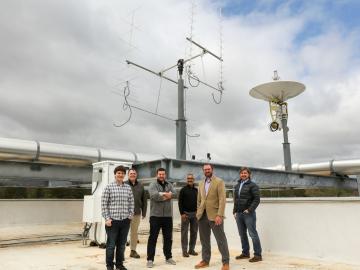
Oak Ridge National Laboratory is debuting a small satellite ground station that uses high-performance computing to support automated detection of changes to Earth’s landscape.
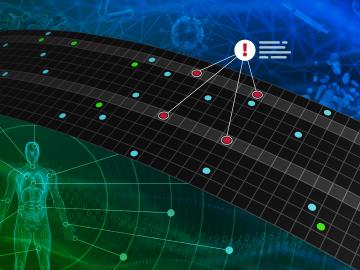
A team of researchers has developed a novel, machine learning–based technique to explore and identify relationships among medical concepts using electronic health record data across multiple healthcare providers.
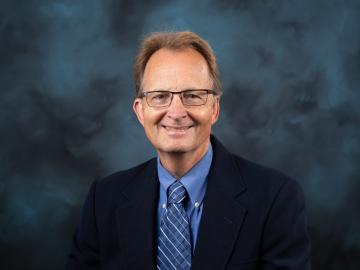
Stan Wullschleger, associate laboratory director for biological and environmental systems science at ORNL, is the recipient of the 2022 Commitment to Human Diversity in Ecology Award from the Ecological Society of America, or ESA.
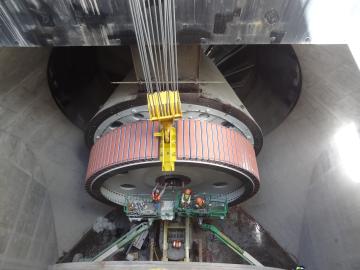
A new Department of Energy report produced by Oak Ridge National Laboratory identifies several supply chain must-haves in maintaining the pivotal role hydropower will play in decarbonizing the nation’s grid.
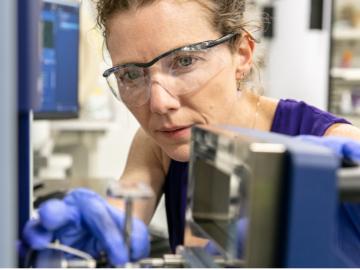
ORNL biogeochemist Elizabeth Herndon is working with colleagues to investigate a piece of the puzzle that has received little attention thus far: the role of manganese in the carbon cycle.
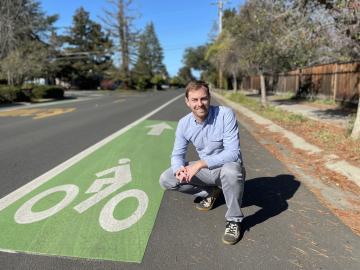
David McCollum is using his interdisciplinary expertise, international networks and boundless enthusiasm to lead Oak Ridge National Laboratory’s contributions to the Net Zero World initiative.
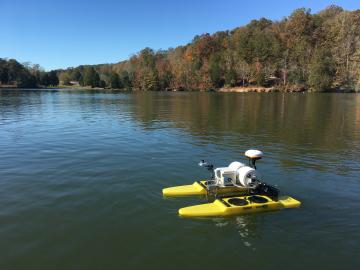
Measuring water quality throughout river networks with precision, speed and at lower cost than traditional methods is now possible with AquaBOT, an aquatic drone developed by Oak Ridge National Laboratory.
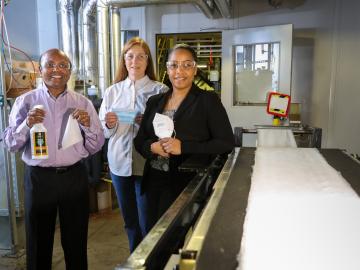
Oak Ridge National Laboratory researchers collaborated with Iowa State University and RJ Lee Group to demonstrate a safe and effective antiviral coating for N95 masks. The coating destroys the COVID-19-causing coronavirus and could enable reuse of masks made from various fabrics.
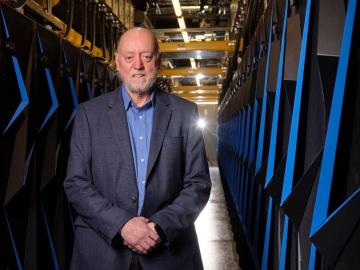
A force within the supercomputing community, Jack Dongarra developed software packages that became standard in the industry, allowing high-performance computers to become increasingly more powerful in recent decades.
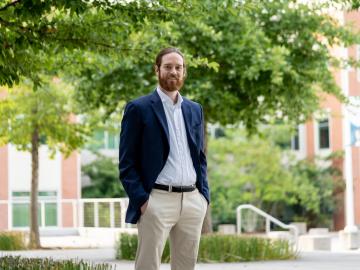
Bryan Piatkowski, a Liane Russell Distinguished Fellow in the Biosciences Division at ORNL, is exploring the genetic pathways for traits such as stress tolerance in several plant species important for carbon sequestration


